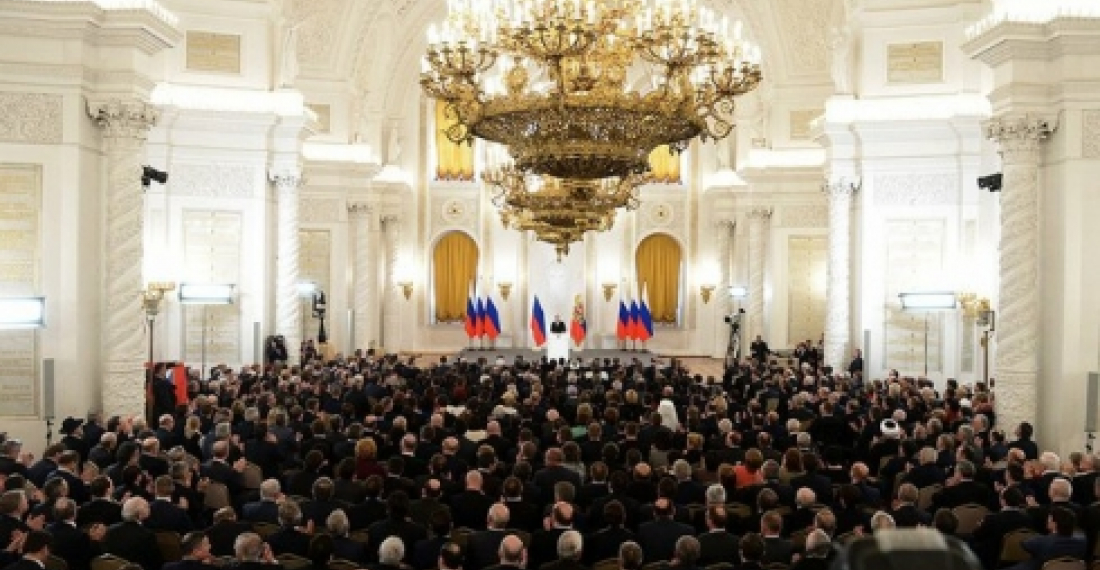Russia has formally annexed Crimea as part of the Russian Federation after a defiant speech by President Putin to the two houses of the Russian Parliament yesterday. This is a commentary by the political editor of commonspace.eu
The world has woken up this morning to a defiant and belligerent Russia that is still celebrating the formal annexation yesterday of the Crimean Peninsula to the Russian Federation. There is now amongst the Russian elite a triumphalist mood, of the sort that Europe has not seen amongst its politicians for many years.
The annexation of Crimea came after a speedy process of not more than three weeks that saw Russian troops entering the peninsula on the most flimsy of excuses, and flagrantly violating the territory of Ukraine - a friendly neighbouring country.
Some, even in the west are saying that perhaps Crimea was always Russian and is returning to where it belonged. They miss an important point. Russia had until last month not claimed Crimea back. It had recognized Ukraine within the borders of the Ukraine SSR when the Soviet Union dissolved in 1991. It was in fact one of three great powers guaranteeing the territorial integrity of Ukraine. Russian action cannot therefore be justified by history.
But this is not about Crimea at all. This is about Russia’s greatness. And it is not about Mr Putin either. He reflects accurately the mood of the Russian political elite.
Western leaders in the last quarter century misunderstood Russia. They offered Russia friendship but dealt with it condescendingly. Russia was never interested in friendship. It was interested in being treated as an equal – an equal that is of the United States and its allies. Russia’s membership of the G8 – seen by the west as a concession to Russia, was not what Russia sought and seeks. Russia does not see itself as an equal to Italy or Canada. What Russia is interested in is the G2 where Russia is the equal and the counterbalance to the US and its allies. Ironically, at least for the moment, the Crimea crisis is giving it this status.
This new situation has however thrown the world into great uncertainty, and it will take years for a new order to return to the international system.
Russia’s triumphalist mood will likely be short-lived. Russia today has neither the ideological cover that Communism provided, nor the isolated economic system that insulated it from global process. It depends on global processes, as much as any other country. Russia’s bet therefore is that the international furore over Crimea will abet, as soon as western leaders take their eye of the case. Russia can then consolidate and prepare for its next move. This is not going to happen, simply because the stakes are now too high. The process of rebuilding a new European and global order will have to start and will take a long time. In the meantime Russia has lost the friendship of western countries. Its elite may decide they do not care about this as long as they have the respect of the west. At the moment however the mood towards Moscow is less of respect and more of contempt. Is this really what the Russian elite wants?
source: commonspace.eu







